I am a contemporary photographic artist based in the beautiful town of Royal Leamington Spa and the bohemian city of Brighton. My art is to metamorphose my photography into beautiful and ethereal compositions. You can purchase my prints & digital downloads or get to know me better in An Interview With Brian Roe.
When I’m not behind a camera, you’ll probably find me behind a drum kit somewhere, either in a studio or on stage. I have been a session drummer for many years and I’m as passionate about my drumming work as I am about my photography. Be sure to see my gallery below for my latest work or visit my Instagram.
If you have any questions or requests, please send me a message.
Intro
Each week, we showcase an established or emerging artist, who is garnering attention for their work.
In this edition, we caught up with digital artist, photographer and all-around good guy, Brian Roe.
Brian is a well-known and popular digital artist and photographer. He specialises in adding his own interpretation of the ethereal and beauty into photography through his digital artistry. But in addition to his stunning photography and art, he’s led quite the rock’n’roll life as we found out below…
PG. Most people know you for your beautiful photography? What they might not be aware of is your 40-plus years of immersion in the world of music, art and technology, …and the different twists and turns that have brought you to where you are today. – Could you tell us a little about yourself and your life journey to date?
BR. To summarise for your readers I would describe myself as a student of fine art; turned teenage punk rock drummer who gave up the hedonist life on the road in the early days of interactive technology to explore the possibilities of web design & digital art. Since the off-set, It’s been my passion and decades later I am still excited about learning and producing art.
The Varuker Days
PG. The use of technology to create and share digital art is something we strongly support here at Pixel Gallery, and we definitely want to find out more about this, …but first, you mentioned you were a teenage punk drummer, we’d love to hear more about this part of your life!
BR. I was the drummer for the British punk rock band The Varukers. I joined the band as a teenager straight from school in Leamington Spa and spent my teenage years touring and recording until I left the band in 1984. We produced 3 pivotal singles during that time all reaching the top 5 of the Indi charts. Our debut album ‘Bloodsuckers” reached number 1 and is still selling. This put The Varukers on the map globally as one of the pioneers and iconic hardcore punk bands of the ’80s.
Brighton
I moved to Brighton in 1987, worked on the Palace Pier selling sunglasses in the day and played the drums in the evening. I toured with Transmission Vamp and New Model Army. Had an audition with The Jesus & Mary Chain and played with all sorts of other bands until I moved to London in 1990.
In the early 90’s I worked with a few goth bands including Sunshot (The guitarist who wrote the Jeremy Kyle theme tune)and Kula Shaker with Crispin Mills. My last big tour of the ’90s was a long UK tour with the iconic punk band X-Ray Specs. I think the many years as a touring musician in rock bands and the accompanying shenanigans finally caught up with me. It was fun while it lasted but my liver is much happier with me now!
Art College
PG. You mentioned earlier you went to Art college.
BR. I was touring with bands which generally only took up a few months of the year, a couple of times a year. I have always been creative and as well as being a drummer, I took the opportunity when I wasn’t touring to study photography as part of a YTS (Youth Training Scheme) in the early 80s where I learnt all fundamentals of photography. Things like ‘dark room’ magic, developing negatives, enlarger printing and photo development the old school way..
I also learnt about professional colour grading and studio work. I still remember one of my first assignments was to set up the correct lighting for photographing antiques for a brochure that had been commissioned by a large antique dealer. After the YTS scheme, I went on to art college where I studied Fine Art, History of Art and 3D design in Ceramics.
Joe Teti
A big influence on my creative education was a guy I met called Joe Tetie. Joe was a fellow drummer (Bonzo Dog Dod Band and sessions with David Bowie) and he mentored me from the age of 17 to 20 years old. He was also an expert potter & ceramicist, and from him, I learnt about composition and ceramics.
His teaching methods were more about the philosophy of design than simply how to create something out of clay. He taught me about the fundamentals of great art.
Things like texture, form mass, how the eye is contained and the golden ratio. Thanks to Joe I learnt about the different techniques and artistic periods, from Leonard di Vinci all the way to modern artists. Today my work is at the cutting of design technology based on a solid foundation of classical art education.
PG. You also studied Art history and theory of art, as well as your expertise in using digital tools with your photography. How would define what art is based on all this knowledge?
BR. Art is the manifestation of spiritual and emotional thoughts and feelings.
After my time as a full-time professional drummer ended, I spent some years as a digital nomad, working in places like Bali, India and Sri Lanka. I worked with and learned from many of the best creatives and technical minds who had formed a community of digital nomads in those places. It was at this time that I immersed myself in the culture and spirituality of these places and this is something I expressed through my work.
Environment & Sustainability
PG. Our environment plays a big role in shaping our day-to-day experiences, how have your current location and previous places you’ve lived in and visited, shaped your art?
BR. As young punk rockers, we were always more environmentally aware than our parents. The places I have seen have shaped me by making me more environmentally aware and more knowledgeable about animal rights.
I am a vegetarian as a result and my awareness of animal welfare also led to a greater understanding of the environment.
I have been very lucky to do a lot of travelling around the world and see the beauty of the world. Unfortunately, I have also seen that beauty ruined by supermarket plastic bags washing up on the beach.
Sustainability is very important to me as a result and for me, photography brings the beauty from the natural world into people’s living rooms and highlights what we stand to lose through irresponsible industry and plastics if we don’t take action now.
PG. How would you describe your art to someone who has never seen it?
The Emotional Connection
BR. Each and every composition I do has a story to tell and a deep connection to me. Some emotionally, some spiritually, and often both. They are not photographic pieces but individual art compositions that resonate with how I see and engage my surroundings. I like to give myself a wow factor from my finished piece and I want to share this with the viewer. It’s like a busman’s holiday for me to be honest, I enjoy playing with my own photos for my own enjoyment and then I want to share them. I want to share the energy I am getting from a composition and hopefully evoke similar feelings from the viewer.
PG. In your view how has technology shaped the way artists express themselves over the past 20 years? And what exciting developments do you see on the horizon?
BR. Technology has revolutionised how artists express themselves. Put this way, technology has enabled all photographers and artists to become surrealist painters. By opening a world that did not exist before… art in the past was something you did with your head and your hands…today you can manipulate reality, you are limited only by your imagination.
Dali
Salvador Dalí in my opinion was the first ‘Photoshop’ artist…If Dali had had Photoshop, I think he would still have created masterpieces like ‘The Persistence of Memory’ and ‘Le Sommeil(Sleep)’ and other works he would have used Photoshop to create them. Dali would have loved to have Photoshop and all the other digital tools today’s artists have access to. In essence, technology has made all photographers into potential Salvador Dalís. There has never been a more exciting time to be creative, to express your ideas and connect emotionally with an audience.
PG. The Covid pandemic and lockdown have been very tough for everyone and many artists, in particular, have found the past year very challenging workwise. What advice would you give to a young person thinking of pursuing the life of an artist but hesitant because of recent events?
BR. Actually, I think the lockdown has made things easier for artists and anyone who wants to create art. The lockdown has given people much more opportunity to be creative by giving them back their time. Hours spent commuting can now be devoted to being creative if that’s the choice you make.
I really believe that as long as you have the passion to want to express yourself artistically then this is as good a time as any to do so! The lockdown has given people time to learn from places like YouTube and research different styles, technics, etc… Passion is the key; a new young artist must be passionate about their work. Take a deep interest in your work and combine it with passion, everything will flow from this.
Di Vinci
PG. Do you have a favourite artist? And do you have a favourite work of theirs?
BR. Leonard di Vinci – and my favourite work by him is his sketches which are currently part of the Royal Collection.
PG. That’s an interesting choice, most people might have chosen ‘The Mona Lisa’ or the ‘Last Supper’, why are his sketches your favourite works by him?
BR. There is so much more going on in his sketches and they are so revealing about the subject. He looks into how things work mechanically, and he was the first artist to do this. He wasn’t just a great sculptor and painter; he studied the concept of why something is pleasurable to look at and he created the mathematical reason for why people get pleasure out of looking at things. Leonard di Vinci was even more impressive than we think, and all of this is appreciable in his sketches.
PG. Do you have a daily routine when it comes to how you work?
BR. Yes, I, learnt this routine from a wise Hari Krishna elder I met at George Harrison’s house many years ago during my time as a musician and he got this info from the Bhagavad Gita which is the Hindu bible. I wake early around 5 am or 6 am and start my day with a strong cup of Lavazza coffee. Early mornings are the most creative parts of the day and I spend the first 3 or 4 hours on my work because it’s quiet and I can focus 100%.
I usually have a composition I have been working on from the day before and generally find that a good night’s sleep will inspire some new ideas for the day ahead. For the next few hours after this, I do non-creative things like admin, shopping, etc. And then around 5 pm, I’ll be back to being creative for the next 3 or 4 hours, either working on my latest work or out taking photos.
Captain Cook
PG. If you could be born as anyone, in another time period in history and anywhere in the world, where would it be, who would you be and why?
BR. Captain Cook! in the early 1800s. He was on a mission to explore somewhere new and all he had was his ship, his crew, a map, and a telescope. He created the first maps of the Solomon Islands amongst others and furthered our understanding of the global community. I would love to do the equivalent of what Captain Cook did with my camera and motorbike, ride out again after the lockdown and take beautiful photos while exploring new places.
PG. What is one thing people are always surprised to find out about you?
BR. Ah, no one’s ever asked me this question before… well, people who don’t know me are usually surprised that I was a drummer for a famous punk band and that I, along with my contemporaries created the ‘D beat’ style of hardcore punk drumming. Or that I was the drummer with the original Kula Shaker when the band when started. We were called the Kays at the time – The name of the first album.
PG. And a final question from us, what one book would you recommend everyone reads?
BR. Awaken the Giant Within’ by Tony Robbins because it helped me understand what makes people tick! Especially myself and helped change my life for the better by helping me find structure and purpose at a time when I needed it.
It acted as a graphic equaliser in a way, the musicians out there will know what I mean!
PG. Thank you so much for sharing your time and experiences with us. We really appreciated it.
BR. Thank you, it’s been a pleasure.
An Interview with Brian Roe was conducted by Pixel Gallery.
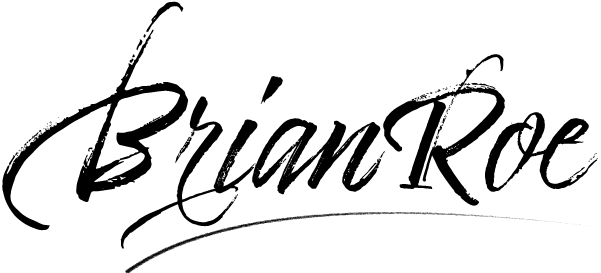
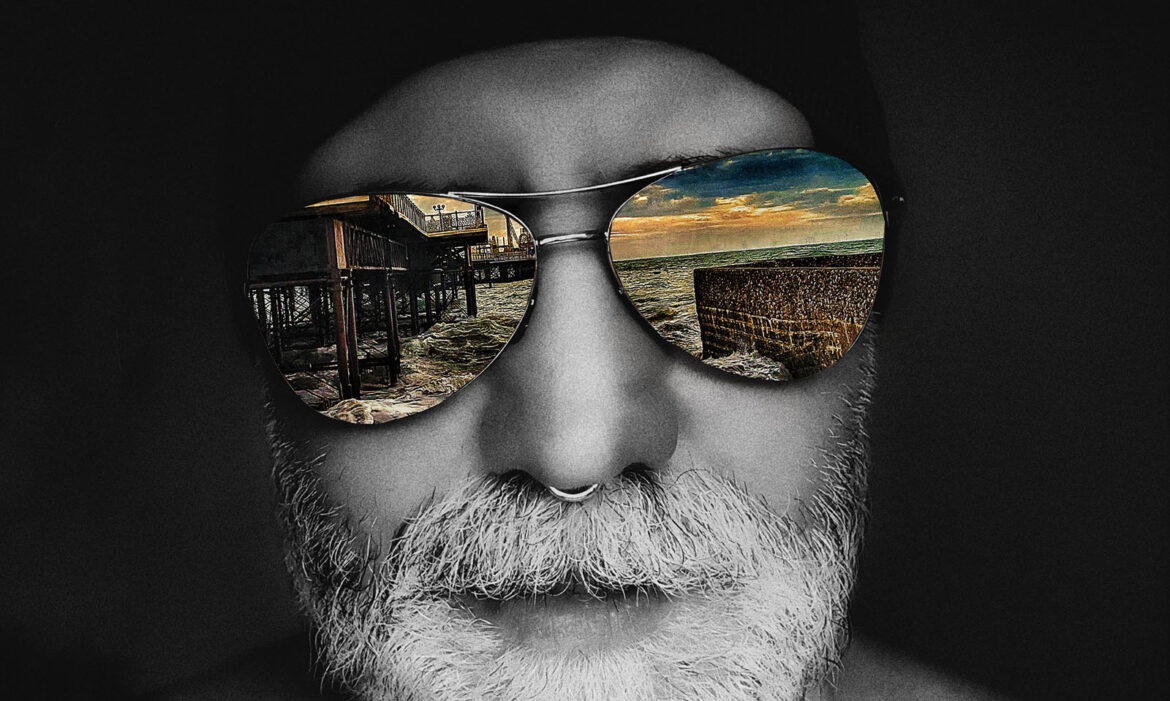
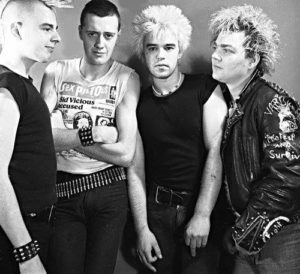
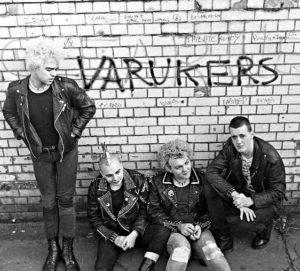
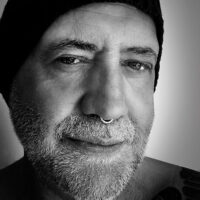
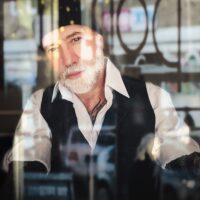
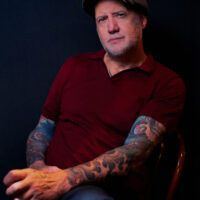
Comments are closed.